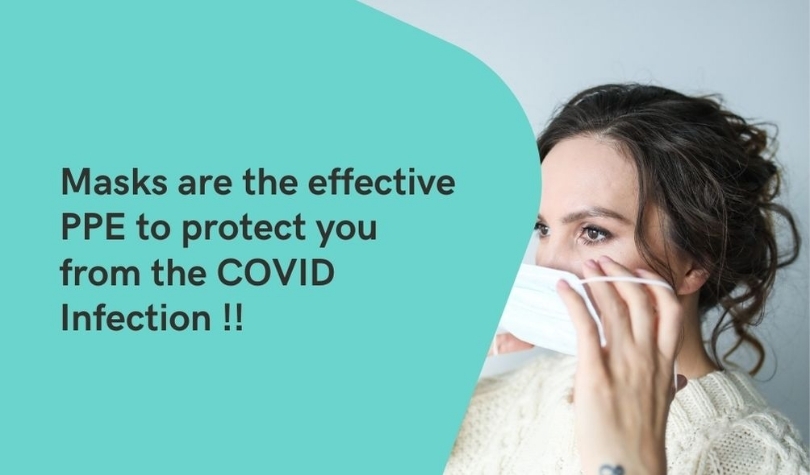We are all aware of the CORONA virus's impact on our day-to-day life. Now Masks have become an inseparable part of our daily chores. Let's discuss the different types of masks and their effectiveness.COVID-19 spreads mainly from person to person through respiratory droplets. These respiratory droplets travel into the air when you cough, sneeze, talk, shout or sing. These droplets then land in the mouths or noses of individuals who are in close contact with you.
Masks act as a barrier to assist in preventing your respiratory droplets from reaching others. Studies show that the masks reduce the spraying of droplets when worn over the nose and mouth.
You should wear a mask, though you are not feeling sick. This is because several studies have found that people with COVID-19 who never develop symptoms (asymptomatic) and people who are not yet showing symptoms (pre-symptomatic) can still spread the virus to other people. The main function of wearing a mask is to guard those people around you, just in case you are infected but not showing symptoms.
It is vital to wear a mask when you cannot remain a minimum of 6 feet from others since COVID-19 spreads mainly among people who have very close contact with each other (within about 6 feet).
Your mask offers some protection to you
The cloth mask /non-medical mask also offers some protection to you. How effective it protects you from breathing in the virus likely depends on the fabrics used, and the way your mask is made (e.g. the type of cloth, the number of fabric layers, the level of fitness the mask has).
Who should wear a mask?
Everyone 2 years aged and older should wear a mask publicly and once they are around people that don't board their household.
Wear a mask when caring for somebody who is sick with COVID-19 (whether reception or during a non-healthcare setting). If you're sick with COVID-19 or think you will have COVID-19, wear a mask after you got to be around people or animals, even in your house.
Who should not wear a mask?
Masks are not recommended for children less than 2 years old anyone who has trouble breathing, anyone who is unconscious, incapacitated, or otherwise unable to get rid of the mask without assistance.
Wearing masks is also hard for some people with sensory, cognitive, or behavioral issues. If they are unable to wear a mask properly or cannot tolerate a mask, they ought to not wear one, and adaptations and alternatives should be considered.
Check out the alternatives for masks here




